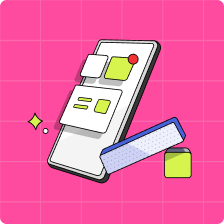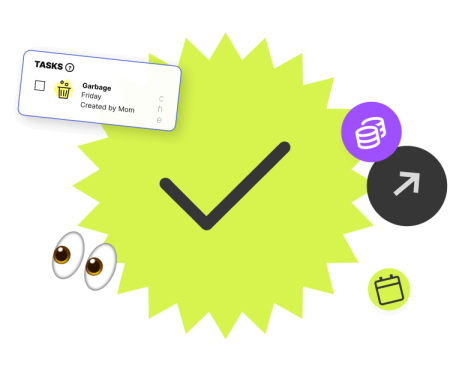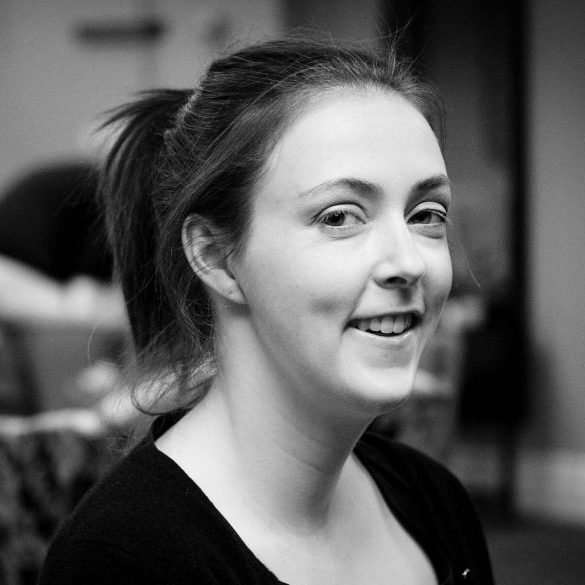You’ve found a dream job posting and worked hard to create a polished resume. But before you submit your application, you need to write a cover letter. It’s an essential written document that accompanies your resume and showcases how your skills and work experience match up with the key requirements listed in the job description.
Of course, writing the thing is easier said than done, especially when it comes to creating a cover letter for students. Luckily, we’ve talked to the pros and got the 411 on cover letters. This article will cover how to address a cover letter to striking the right professional cover letter format to how to write a cover letter with no experience. Dive in and learn how you make the best first impression to a prospective employer.
What is a cover letter?
A cover letter is a one-page written introduction to a prospective employer, which is submitted with your job application. Consider it the sidekick to your resume: it briefly explains why you’re applying for the position and gives you a chance to sell your skills.
“It sends out a call for action for them to call you for an interview,” says Christine VandeGraaf, General Manager of Employment, Training and Settlement Services at the YMCA of Hamilton.
These days, debates rage about whether the cover letter is dead, and the jury is still out on the verdict. While it’s true that some employers are phasing it out, a cover letter can nonetheless give you a leg up in the job application process.
“The potential employer is seeing dozens of other resumes along with yours,” says Cheyene Shuart and Abby Russell from the YMCA of Southwestern Ontario. “So your cover letter is your chance to start a conversation with the employer and show them who you really are and why you would be a good fit for the position.”
Do you need a cover letter as a teenager?
The unanimous answer from the experts is… yes! Teenagers should always include a cover letter with their resume, even if a job posting doesn’t explicitly state that one is required. Consider it a best practice that can help you stand out above the rest, and if yo u have limited work experience, the experts say it can especially give you a competitive edge.
“It can be intimidating to find work when you haven’t had much (or any) work experience, especially when most positions are looking for previous experience,” says Shuart. “Sometimes resumes aren’t enough to prove to the employer that you would be a good fit for the position,” adds Russell.
“Cover letters are meant to highlight a little bit of your experience and skills, but they are mostly used to explain how that experience and skills relate to this exact position, which is what matters the most to potential employers.”
Read more: 14 best part-time jobs for teens.

What should a high school cover letter include?
Whatever you do, don’t draft a saga of all the things you’ve ever done in your life and why it makes you great. When it comes to writing a cover letter, brevity is your BFF: Recruiters generally spend six seconds reviewing the average candidate. Make every word count! Here’s what should make the cut in your cover letter, including how to address a cover letter.
Your contact information
Your contact information should appear first. Typically, this section sits in the left-hand corner at the top of the page and includes your name, address, email address, website, LinkedIn URL, and phone number in a listicle format.
By the way, now is the time to create a professional email address. Keep it simple: use your name (Jamie.Doe@gmail.com) or create a generic address (hire.jamie@gmail.com).
The date
Hit the enter button twice and write the date in full [DAY/MONTH/YEAR].
The employer’s contact information
Next, include all the employer’s contact information two lines after the date. List the hiring manager/employer’s name, company name, company address, and any other contact information pulled from the job posting.
Greeting
Start with a polite greeting, such as “Dear [Ms./Mr./Dr./Professor/etc.] [LAST NAME].” If you aren’t sure of the hiring manager’s gender or wish to avoid gendered greetings altogether, you can enter their full name (“Dear FIRST NAME/LAST NAME”).
Avoid using “To whom it may concern” if you can, as some experts say this greeting is starting to feel a little tired.
First paragraph: Introduce yourself
Right off the bat, the first paragraph should cover the basics: who you are, what position you’re applying for, how you heard about the position, why it interests you, and what makes you an ideal candidate.
“This should be no more than three or four sentences and should just be a quick snapshot to capture the reader’s attention,” says Shuart and Russell.
Second paragraph: Your qualifications
The next paragraph should describe your credentials as it relates to the job description. Specifically, describe how your relevant education, work/volunteer, and skills or training experience make you a good fit for the job. But keep it short: Focus on how your accomplishments match the job requirements and leave the nitty-gritty details for your resume. This section should be no more than five to seven sentences.
“When writing sentences about your skills and how they apply to the job, always explain when you used the skill, how you used it, and what the end result was,” says Shuart and Russell. “This shows the employer that you did your homework on what they are looking for and helps to illustrate why you would be a good fit.”
For example, if the job posting is asking for “excellent communication skills,” you could talk about your experience as a student council representative: “As student council secretary, I am responsible for producing an online newsletter that is distributed monthly to over 700 students—an experience that has given me the opportunity to build and apply my excellent communication skills.”
Depending on the job, you may also want to highlight other strengths or “selling features” that could help get you onto the interview list.
“For a young person, it may include phrases such as availability (evenings/days/weekends) driver’s license and access to a car, WHMIS certifications, or how the experience will fit into their future career goals,” says VandeGraaf.
The bottom line: Explain how your qualifications directly relate to the position and use concrete examples.
Closing paragraph: Wrap up and thank you
In your final paragraph (around three to five sentences), wrap up with a brief conclusion about why the skills you highlighted make you a good fit for the job. Shuart and Russell also say to “be bold” and include a call to action—such as requesting a job interview—as well as restate how you can be contacted (“I can be reached by mobile phone or email”). Last but not least, don’t forget to thank the employer for their time and consideration.
“They have lots of resumes to get through, so a little appreciation can help them remember you better!” they add.
Sign off
End on a professional note: “Finish strong with a polite, formal closing, such as “Sincerely, [YOUR FULL NAME]”.
Learn more: Job interview questions for teens and sample answers.
Tips for writing a cover letter for a student with no work experience
No work experience under your belt? You’ve got this! Here are a few tips for how to write a cover letter with no experience.
Read the job posting
“The job posting tells you what skills and experience the employer is looking for, so you should show the employer how you measure up to their needs,” says Shuart and Russell. It also gives away keywords to use in your cover letter and resume.
Prove your skills
Make a list of the key skills required for the position (e.g., excellent communication, time management, problem-solving abilities). Then, think of examples of when you accomplished something using those desired skills. “Whether it was work, volunteer, or academic experience, the most important part is proving you have the skill,” says Shuart and Russell. “You also can relate it to the position: ‘My communication skills would help me build a strong rapport with customers.’” If you’re struggling to make the connection, ask a friend or family member to help you brainstorm.

Think outside the box
If you’ve never had a job, draw on your lived experience to illustrate putting your skills into practice. Were you a volunteer tennis coach for kids last summer? Did you organize a climate justice rally that 500 people attended? Did you teach your grandma how to use Microsoft Office on a weekend? “Any experience is good experience!” says Shuart and Russell. “You don’t have to have previous work experience to have good communication. Can you use a volunteering or academic example?”
Use keywords
If the job is asking for “excellent customer service skills,” include that phrase somewhere in your cover letter. “Some employers use software that searches for the keywords they are looking for, so your cover letter could be screened out if you don’t have the keywords noted in the job posting,” says Shuart and Russell. “The other benefit of using these keywords is showing the employer you read carefully through their job posting. It’s a great, subtle way to show you pay attention to details as well!”
Use “action” words to paint a picture
Use descriptive language to showcase your skills and experience, as well as your accomplishments. Instead of simply saying you did something, use “action” verbs such as led, researched, created, managed, delivered, resolved, founded, developed, tracked, collaborated, grew, or promoted. Put your thesaurus to work!
Keep it simple
A cover letter should be easy-to-read and not cluttered with text. Keep it simple and don’t bedazzle it with fancy colours and graphics. “Most employers prefer to see simple, easy-to-follow applications,” say Shuart and Russell. “Keep most of your text left-aligned and keep it professional-looking.”
Proofread
Run a spelling and grammar check. Read your cover letter out loud to catch any long-winded sentences or awkward transitions. Get a parent or friend to proofread for typos. Double-check that the hiring manager’s name is spelled correctly. Your cover letter should be as clean as a whistle before you hit send.
Learn more: Best summer jobs for teens in Canada.
Sample cover letter or high school student
Need inspo to write a killer cover letter? Here’s a sample cover letter for high school students.

Jennifer McGee
1000 Fairyland Blvd
Toronto, Ontario
M53 1Z5
(416) 111-4444
Jennifer.McGee@gmailexample.com
January 1, 2023
Theresa Wright
Head Librarian
Toronto Public Library – Palmerston Branch
560 Palmerston Ave
Toronto, ON M6G 2P7
Dear Ms. Wright,
Please accept my application for the position of Library Page at the Toronto Public Library, Palmerston Branch. As an avid reader and regular library patron, I was very excited to learn about the available position, which is currently posted on your organization’s website. My professionalism, work ethic, and understanding and appreciation for public service make me an ideal candidate for this position.
As student council secretary, I am responsible for producing an online newsletter that is distributed bi-weekly to over 700 students—an experience that has given me the opportunity to apply my excellent communication skills in action. Most recently, I completed a twelve-week co-op experience at FoodShare Toronto, where I worked in the community garden and supported food literacy workshops in schools. The experience gave me an opportunity to interact with the public in a professional manner, as well as complete tasks independently and part of a team. My values for hard work and continuous learning allowed me to complete the co-op with a grade of 95%. My time management skills were also demonstrated when I had to juggle three essays and two exams during last semester. I used my superior organizational skills to ensure that I prioritize my school work based on difficulty level and deadline, while balancing my hobbies of tennis and piano. As a result of my efforts, I achieved Honour Roll status and a good work-life balance.
The Toronto Public Library values teamwork and public service, both of which align with my skills, experience, and values. I also get enormous satisfaction in serving the public and have a passion for promoting literacy. Based on my qualifications, I believe I would be a strong member of the team at the Palmerston Branch. I would love to discuss my candidacy further in an interview with you. I can be reached by phone or email. Thank you so much for your time and for considering my application.
Sincerely,
Jennifer McGee
Last word about how to write a cover letter like a pro
The task of writing a cover letter can feel daunting when you’re facing a blank screen. But there’s only one way to overcome that hurdle: start writing! Using these expert tips, kick off your letter by formally introducing yourself and then outlining how your skills and experience make you suited to the job. Use concrete examples that are action- and results-oriented, showing (not just telling!) how you’re a great candidate.
If you’ve never had a job, remember that your lived experience is equally valuable, and no employer expects you to have a plethora of job experience at this stage in your life. Avoid padding your cover letter with overblown achievements, and focus on sharing what you have to offer.
Download the Mydoh app to help your tweens and teens gain real-life experience managing their money.
This article offers general information only and is not intended as legal, financial or other professional advice. A professional advisor should be consulted regarding your specific situation. While the information presented is believed to be factual and current, its accuracy is not guaranteed and it should not be regarded as a complete analysis of the subjects discussed. All expressions of opinion reflect the judgment of the author(s) as of the date of publication and are subject to change. No endorsement of any third parties or their advice, opinions, information, products or services is expressly given or implied by Royal Bank of Canada or its affiliates.








